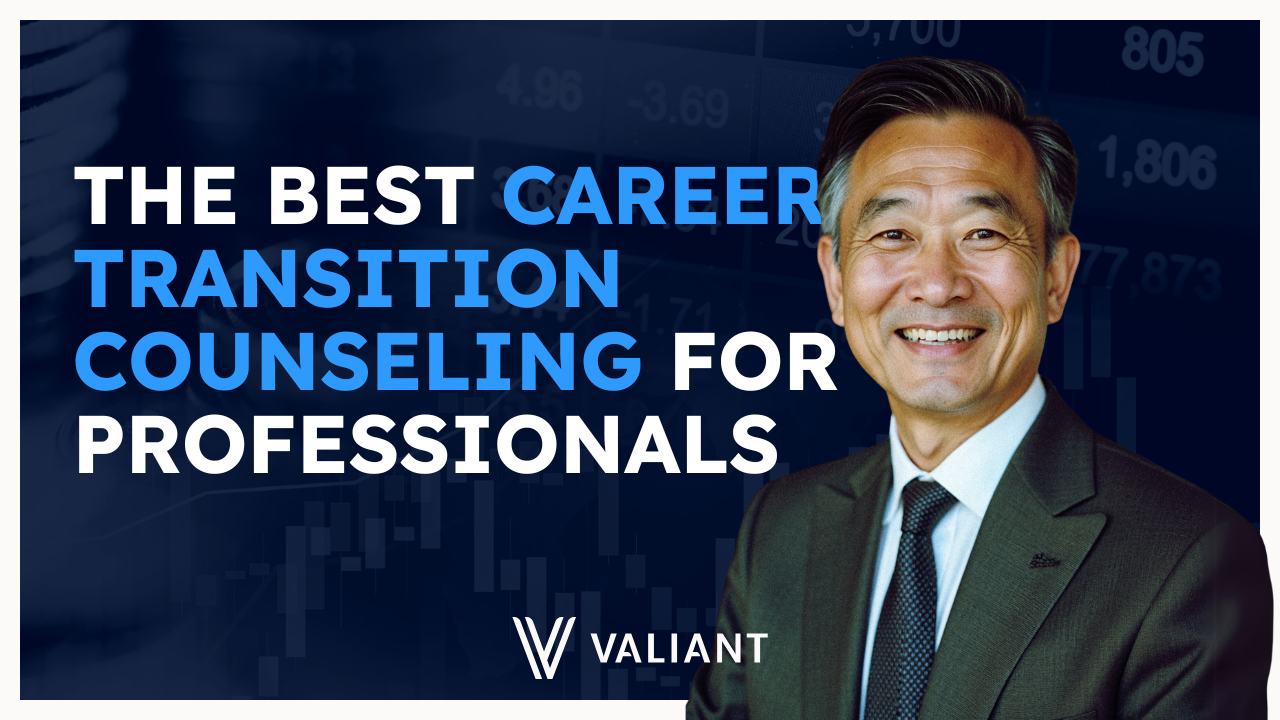
Career transitions at the executive level will demand more from you than resume updates and scattered networking efforts. Unfortunately, most career counseling services only offer superficial solutions that fail to address the real realities of career shifts or industry pivots. Making a bold move—whether stepping into the C-suite, entering a new field, or redefining your career trajectory—requires targeted, unfiltered, honest insight into your work and self, direct market access, and a partner who pushes you to achieve more.
Why Most Career Transition Coaching Fails Senior Professionals
Career transition coaching often fails because it emphasizes tactics over strategy. Resume enhancements and LinkedIn tweaks might improve visibility, but they don’t answer the fundamental question: Where should you position yourself in a competitive market? Without understanding your unique value in the current hiring landscape, these superficial fixes merely create noise. Strategic career planning—anchored in your marketability, industry shifts, and long-term ambitions—should be the priority, yet many services bypass it entirely.
Pay Attention to:
Market Access Gap: Senior-level opportunities rarely appear on job boards. Most are secured through relationships, not applications. If your coaching provider doesn’t connect you to decision-makers and industry insiders, even the best application materials will hit a dead end. Authentic introductions and access to hidden opportunities are critical for high-level transitions.
Feedback Quality: Many consultants shy away from tough conversations, offering feel-good advice instead of actionable critiques. Unfiltered, constructive feedback is essential to help you identify blind spots and elevate your professional brand. Without it, you risk misrepresenting yourself in ways that don’t resonate with decision-makers.
Common Missteps:
Low-cost or generalized services fail to address the nuanced challenges of senior professionals. These services rarely offer the depth of insight required for executive transitions. Additionally, executives often neglect to vet consultants’ expertise, assuming all providers are equally equipped to handle high-stakes career moves. A lack of due diligence can leave you with advice that’s irrelevant or even detrimental.
Avoiding these pitfalls requires a deliberate, discerning approach to choosing career transition coaching. Prioritize those who understand the stakes of senior-level transitions and can offer the strategic edge you need.
Actionable Strategies to Find the Best Career Transition Counseling
How to Choose a Career Change Consultant
Vet their track record. A credible consultant will have demonstrable experience navigating senior executives through complex transitions—not just anecdotal success stories. Ask specific questions about how they’ve addressed challenges like industry pivots, executive branding, and compensation negotiation.
Assess who they know and are associated with. High-level career moves hinge on access to decision-makers and unadvertised opportunities. A consultant without direct connections to industry leaders or market insiders will struggle to deliver results. It’s not the number of contacts but the quality and relevance of their network to your goals.
Candor is non-negotiable. The best consultants provide unfiltered feedback that forces you to confront blind spots and refine your approach. Avoid those who focus on feel-good advice instead of actionable, sometimes uncomfortable, insights.
Top Traits of the Best Career Transition Services
Look for a service offering holistic support. This means strategic career planning, branding, and negotiation guidance tailored to your unique profile. A piecemeal approach is a red flag.
Effective services also prioritize long-term alignment. They go beyond helping you land a role by ensuring the position aligns with your career trajectory, values, and aspirations.
They offer market-specific expertise. Senior-level transitions require insights into hiring trends, compensation benchmarks, and competitive dynamics in your field.
How to Leverage Career Transition Coaching
Use It to Break Patterns: Coaching helps you break reactive patterns by fostering proactive planning. Instead of chasing roles, you’ll strategically position yourself to attract opportunities.
See Your Career Through the Eyes of an Expert: Effective coaching reframes your skills and value for new industries or roles, ensuring your story resonates with decision-makers.
The Role of a Career Change Consultant
A top consultant does more than offer advice—they provide structured frameworks to evaluate opportunities, mitigate risks, and avoid costly mistakes. They act as a mirror, reflecting both strengths and areas requiring growth.
The Courage to Make Your Move
In the process of taking a deep look at your career, you will be forced to rethink your assumptions, sharpen your approach, and aim higher than you thought possible.
This process isn’t for everyone. It requires courage to confront hard truths, invest in yourself, and commit to a strategy that aligns with your unique potential. But for those ready to take the leap, the rewards are transformative—not just a better role, but a career that amplifies your impact, aligns with your values, and delivers lasting fulfillment.
The question isn’t whether you need the support—you absolutely would benefit from it.
Instead, ask yourself if you’re ready to do this work at all.
But know that with a team of experts by your side, navigating the complexities of your next move becomes less daunting and more empowering. Let’s work together to make it happen.